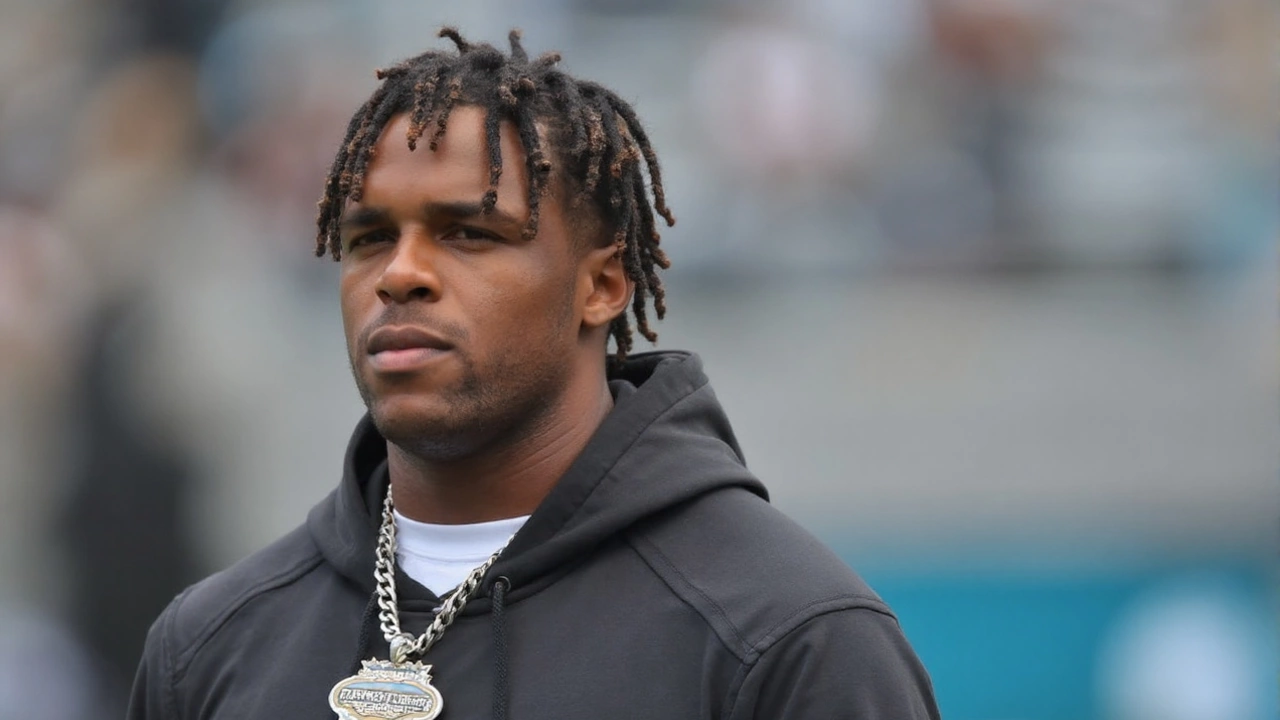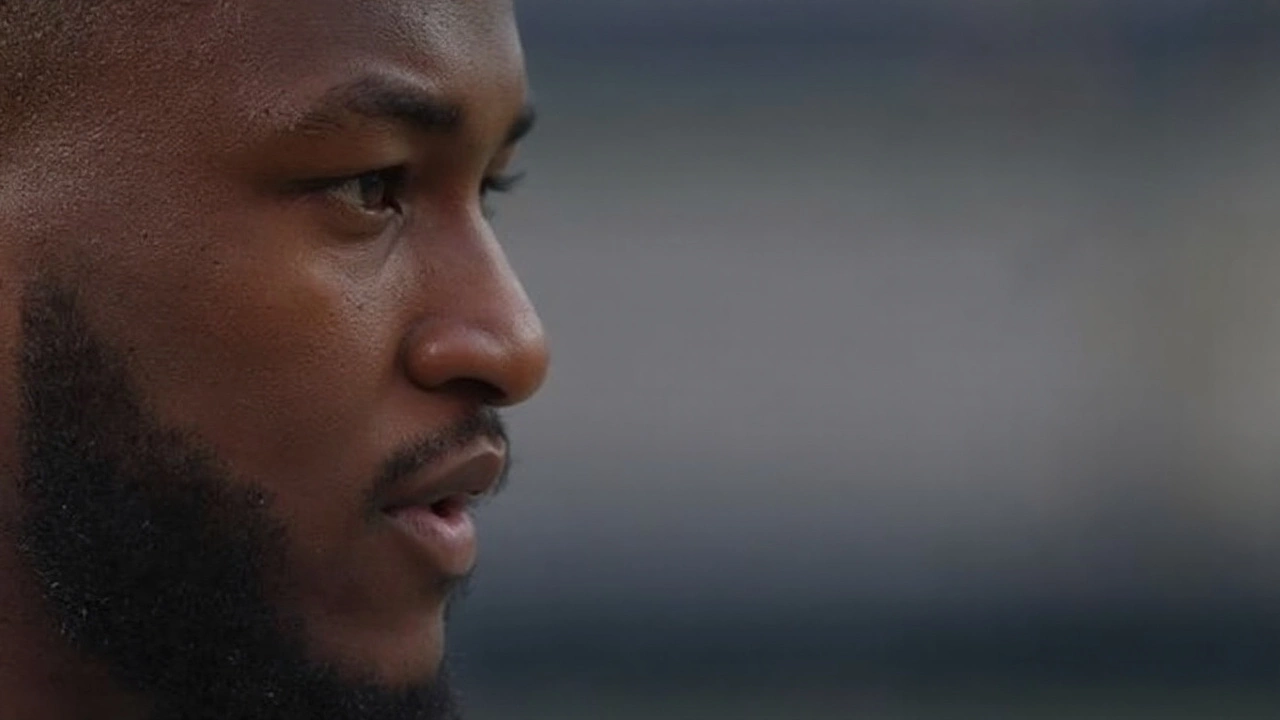By Arlo
What happened in Dallas
Six seconds into the NFL season, the Philadelphia Eagles lost a Pro Bowl defensive tackle and handed Dallas a short field. Jalen Carter was ejected before the first snap from scrimmage on Thursday night after spitting on Cowboys quarterback Dak Prescott following the opening kickoff. The flag flew fast. The 15-yard unsportsmanlike conduct penalty pushed the ball into manageable territory, and Dallas punched in a one-yard rushing score to start the game.
Referee Shawn Smith told reporters the decision was straightforward: an official saw Carter spit on an opponent. Smith called it a non-football act and a disqualifying foul. That left the Eagles without one of their most disruptive linemen for essentially the entire game.
The crowd reaction was instant and loud. Boos followed Carter as he walked off, helmet in hand, taking the long route to the tunnel. On the Cowboys sideline, coaches huddled with Prescott while officials sorted out enforcement and game administration before the first offensive play.
Philadelphia absorbed the shock. Despite the early seven-point hole and a shuffled defensive line rotation, the Eagles settled in and clawed back to win 24–20, flipping a messy start into a gritty road victory. The win kept the focus on their resilience, but the moment that kicked off the night will be the part the league studies most.
Carter, 24, is a central piece of Philadelphia’s front. A year after the Eagles drafted him No. 9 overall out of Georgia, he earned his first Pro Bowl, finishing last season with 4.5 sacks and 42 tackles. His snap-to-snap burst and power changed how offenses blocked the Eagles’ interior. Losing that presence for almost an entire game would have cracked a lot of teams. Philadelphia patched it together with next-man-up snaps and more stunts to manufacture interior pressure.
The sequence itself was quick. After the kickoff, tempers flared during the routine post-kick milling and jawing that happens in every game. Carter and Prescott exchanged words. Then came the act that triggered the flag. Prescott gestured to a nearby official, and the crew responded immediately. There was no warning issued and no further debate.
Inside the stadium and online, reaction lit up fast. Clips of the aftermath spread, and former players chimed in on the message it sends, especially in a season opener, when everyone is on their best behavior—or supposed to be. Beyond fan outrage, coaches around the league will use the tape in team meetings this week as a reminder of how quickly a game can swing because of a personal foul.

What comes next for Carter and the Eagles
The NFL office will review the play for potential discipline. The league typically processes these cases early in the week—fines are common, and suspensions are possible when conduct is deemed egregious or repeated. As reported by Pro Football Talk, league sources signaled that remorse and accountability will factor into the decision. That tracks with the league’s long-running emphasis on "respect for the opponent," a point hammered home in preseason rules briefings.
Spitting at or on an opponent falls under unsportsmanlike conduct and is directly addressed in the rulebook. A player can be ejected on the spot. If the league issues a fine, it would likely land in the standard range for personal conduct fouls, though the amount can climb if they view the act as targeted or intentional. A suspension would cost Carter a game check and force Philadelphia to rework its front for at least one week.
Carter spoke with reporters after the game. He addressed the incident and the team’s win, but the substance of what he said will matter less than how the league reads it. Public and private contrition often influences the outcome. If he meets with the team and the league office early next week, we’ll have a clearer picture of whether this stops at a fine or stretches into a ban.
Philadelphia also has its own housekeeping. Teams often handle these incidents internally with fines or mandatory sessions with position coaches and player engagement staff. The Eagles will weigh how to respond without making the story bigger than it already is—tough to do after a prime-time opener where the entire football world watched.
From a football standpoint, the coaching staff had to rip up parts of the plan on the fly. Carter is a tone-setter. Without him, the Eagles leaned on rotational linemen for early downs and used timely pressures on third down to avoid giving Prescott clean pockets. The stat sheet won’t capture those adjustments, but the tape will show Philadelphia’s front changing gaps and alignments to mask the loss of their star tackle.
Dallas will wonder if it left points on the field. The Cowboys took advantage of field position to strike first, but the offense bogged down later. Credit the Eagles for settling their offense, protecting the ball, and flipping the script in the second half. In a division rivalry where margins are thin, one 15-yard swing didn’t decide the game—but it sure set the tone.
Carter’s history will be mentioned because context always follows a player. In January 2023, he was involved in a car crash that killed a former Georgia teammate and a staffer. He pleaded no contest to reckless driving and street racing. On the field, he rebuilt his profile and played at a Pro Bowl level last season. Thursday night introduces a new line on his file—one the league will evaluate on its own terms, separate from past legal issues but always part of the bigger picture teams consider with star players.
There’s a human part to this too. Football is emotional. Openers carry extra charge. Spit is a flashpoint across sports because it’s seen as a line you don’t cross. Players can live with hard hits; they bristle at perceived disrespect. That’s exactly why the rule is so clear, and why officials are quick with the flag when it’s crossed.
Philadelphia’s locker room will move quickly. Coaches will stress discipline and poise. Veteran leaders will pull younger guys aside and make the point in plain language: don’t put the team in jeopardy. The Eagles escaped with a win against a division rival. That’s not a formula to test every week.
On the Cowboys’ side, Prescott’s reaction—immediately notifying the official rather than escalating—will be held up around the league as the right response. He let the rulebook handle the moment and kept Dallas focused on the drive in front of them. It’s a small thing that matters over a long season.
For fans asking what the league looks at in these cases, here’s the basic roadmap:
- Game report from the officiating crew detailing the conduct and the basis for disqualification.
- All-22 and broadcast angles reviewed by the league’s football operations and discipline departments.
- Any statements from the player, team, and union, plus prior conduct on file.
- A decision on fines or suspension, typically communicated by midweek.
There’s also a performance ripple. If Carter misses time, the Eagles will redistribute snaps along the interior, mix more movement up front, and possibly lean on quicker pressures to keep quarterbacks off rhythm. That can work for a week or two, but in a long season, they need their star back on the field and on the right side of the line officials are guarding.
For now, the tape shows a rare scene: a Jalen Carter ejection before a single offensive play. It brought a 15-yard penalty, an early Dallas touchdown, and a long walk to the locker room. It also brought a response—Philadelphia regrouped and found enough late-game answers to steal a win on the road.
What we know: he was ejected for spitting, the penalty directly aided Dallas’ first score, and the Eagles still closed it out 24–20. What we don’t know: the exact size of the fine, whether a suspension is coming, and how the team will handle it internally. Those answers will come soon.
Key numbers to keep in mind:
- Time of ejection: 0:06 into the game.
- Penalty: 15 yards for unsportsmanlike conduct.
- Opening drive: Dallas scored on a one-yard run.
- Final score: Eagles 24, Cowboys 20.
- Carter’s 2024 stat line: 4.5 sacks, 42 tackles (Pro Bowl).
The league’s message is consistent: respect your opponent, keep control, and don’t force the officials to make a call you can’t undo. The Eagles escaped the worst-case scenario on the scoreboard. The rest of it—fines, possible suspension, and how Carter rebuilds trust—gets sorted in the week ahead.
